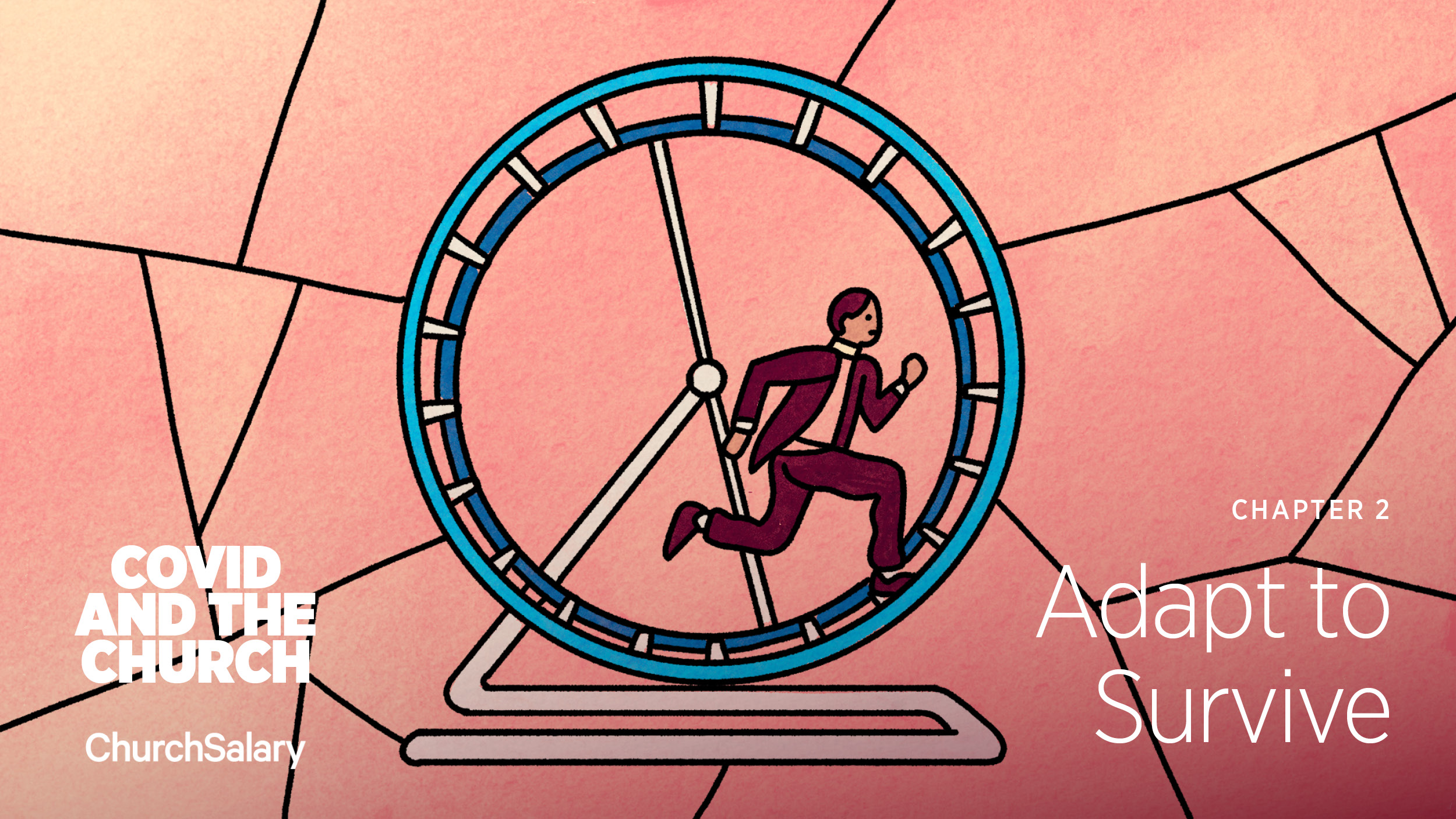The declaration of a worldwide pandemic in March 2020 and the cascade of health policies that followed forced pastors and congregations to rapidly respond. Because no churches wrote “close our doors” in their three-year goals, everyone had to learn quickly and make adjustments simply to survive.
In his article on power, privilege, and adaptive leadership in 2020, Todd Bolsinger framed the crisis in two phases: "First is the acute phase where you're just trying to survive." Second, is "the adaptive phase, where you actually use the energy of the crisis to address underlying issues."
What's clear in our research is that almost all churches faced acute changes because state and local restrictions, building arrangements and church demographics are different, the changes that everyone made were different as well.
What's less clear is whether churches actually adapted to how people live post-pandemic, and whether those changes will last.
Based on Chapter 2 of the report, in this episode host Aaron Hill (editor of ChurchSalary) sits down with two researchers from the Arbor Research Group, Ebonie Davis and Jon Swanson, to talk about the common experience of adapting in order to survive. Featuring an in-depth interview with Eric Blauer, a local pastor leading a church in the Pacific Northwest, about his experience of rapid adaptation during the pandemic.
Hosted by Aaron Hill, Editor of ChurchSalary
"COVID and the Church" is produced in conjunction with the Arbor Research Group and funded by the Lilly Endowment, Inc., through a grant from the Economic Challenges Facing Pastoral Leaders (ECFPL) initiative.
Executive produced by Aaron Hill, Terry Linhart, and Matt Stevens
Director for CT Media is Matt Stevens
Audio Engineering, Editor, and Composer is Tyler Bradford Wright
Artwork by Ryan Johnson









